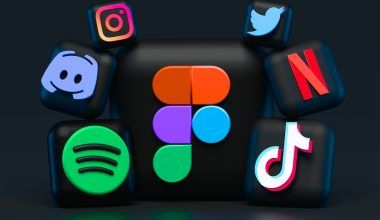Making a living in the music industry can seem like a dream for many aspiring artists. It’s not just about creating great music; it’s also about understanding how to turn your passion into a sustainable source of income. Whether you’re a singer, songwriter, instrumentalist, or producer, finding ways to boost your earnings in music is essential for long-term success.
Why Earnings in Music Matter
Music is more than just an art; it’s a business. For those who pour their heart and soul into their craft, ensuring a stable income can feel like a balancing act. But the good news is, with the right strategies and mindset, you can earn well from your music while staying true to your art.
Many artists struggle at the beginning, unsure of how to navigate the financial side of their careers. But remember, every successful musician started somewhere. The key lies in understanding the opportunities available to you and being proactive in seizing them.
Understanding Your Revenue Streams
The music industry offers diverse revenue streams. Some may surprise you with their potential, while others will feel more familiar. Let’s explore the main ways musicians can earn money:
1. Live Performances and Gigs
Performing live is one of the oldest and most reliable ways for musicians to earn money. Whether it’s a local bar, a private event, or a major festival, gigs can provide consistent income.
To maximize your earnings from gigs, focus on building relationships with event organizers and venues. Networking is essential, and having a solid portfolio or demo to showcase your talent is vital.
2. Streaming Platforms
Streaming platforms like Spotify, Apple Music, and YouTube have revolutionized how people consume music. These platforms pay artists per stream, and while the rate might seem small, the numbers add up if you can grow a loyal audience.
The trick is to market your music effectively. Use social media, collaborate with influencers, and engage with your fans to boost streams.
3. Merchandise Sales
Selling merchandise, such as T-shirts, posters, and custom accessories, can be a significant source of earnings in music. Fans love to support their favorite artists by buying memorabilia.
Invest in unique designs that reflect your brand. Setting up an online store or selling merchandise during gigs are great ways to reach your audience.
Licensing and Royalties
Licensing is an area where many musicians miss out on potential income. If your music gets used in movies, commercials, or video games, you can earn substantial royalties. Platforms like Songtradr and Sync Licensing help artists connect with opportunities.
Performance royalties are another important stream. Organizations like ASCAP and BMI collect royalties whenever your music is played in public. Registering with these organizations ensures you get paid for your work.
Crowdfunding and Fan Support
Crowdfunding platforms like Patreon or Kickstarter allow artists to receive direct support from fans. This can be a game-changer, especially for independent musicians.
Engage your audience by offering exclusive content, early access to songs, or personalized shoutouts. Fans love feeling like they’re part of your journey.
Social media isn’t just a promotional tool; it’s a potential income source. Platforms like YouTube and TikTok offer monetization options through ads and sponsorships.
Create engaging content regularly, from behind-the-scenes clips to tutorials and live sessions. This helps you stay connected with your audience while diversifying your earnings.
Collaborations and Partnerships
Collaborating with other artists or brands can open new doors. Partnerships often lead to greater exposure and shared fanbases.
Think about joint projects, co-branded merchandise, or even teaming up for live tours. Collaboration benefits everyone involved and can significantly boost your earnings in music.
The Role of Education and Skills
Investing in your education as a musician can pay off immensely. Learn about music production, marketing, and business management. These skills can help you cut costs, grow faster, and understand the financial aspects of your career better.
For example, knowing how to produce your tracks can save studio costs, while understanding contracts ensures you don’t miss out on royalties.
Building a Brand
Your personal brand plays a massive role in your earnings. A strong brand helps you stand out in a crowded industry. Think about your unique style, values, and message as an artist.
Consistency is key. From your music videos to your social media posts, everything should align with your brand.
Challenges and Overcoming Them
Of course, earning money in music isn’t without its challenges. Competition is fierce, and income can be unpredictable.
The solution? Diversify your income streams, stay consistent, and never stop learning. Surround yourself with a supportive network, and don’t hesitate to seek advice from industry professionals.
Final Thoughts
Earning money in the music industry requires creativity, hard work, and a willingness to adapt. With the right approach, you can turn your passion into a fulfilling and profitable career.
By leveraging live gigs, streaming platforms, licensing, merchandise, and fan support, you’ll create multiple income streams that ensure stability and growth. Remember, every step forward, no matter how small, brings you closer to your goals.
Stay dedicated, embrace the journey, and let your music inspire both you and your audience. The opportunities are endless—you just need to grab them.
For further reading, explore these related articles:
- Heartbreak Songs: Why We Love Them and How They Heal Us
- Famous Spanish Songs That Have Won Hearts Everywhere
For additional resources on music marketing and distribution, visit DMT Records Pvt. Ltd.






